Mikhail Karisalov: ‘TAIF and SIBUR are colleagues and partners’
During a two-day business trip, the management of TAIF Group visited SIBUR’s factories in Tyumen Oblast

Kazan — Noyabrsk — Tobolsk — Kazan: two superintense days. A business trip of the management of TAIF Group to SIBUR’s gas processing and petrochemical enterprises of SIBUR in Tyumen Oblast came to an end. Read in Realnoe Vremya’s report what they focused during the visit and how close the connection between Siberia and Tatarstan becomes.
“To keep focus on partnership”
Noyabrsk — a town located in Yamal-Nenets Autonomous District with a population of a bit more than 100,000 people whose creation and development history is closely linked with the exploration of hydrocarbon fields — became the first point of the route for the Tatarstan delegation that included Board Chairman of TAIF JSC Albert Shigabutdinov, Senior Adviser to the Board of Directors of TAIF JSC in Petrochemistry Farid Minigulov, Director General of TAIF-NK JSC Maxim Novikov and Vice Director of Petrochemistry and Oil Processing at TAIF JSC Marat Idrisov.
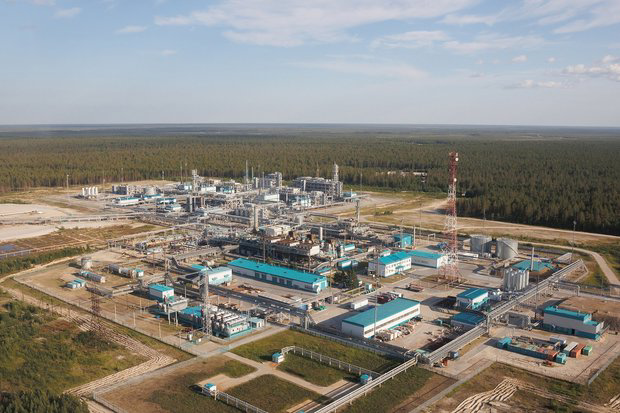
Eight gas processing factories of SIBUR in Siberia provide ZapSibNeftekhim’s oil processing capacities with feedstock. Roman Khasayev/realnoevremya.ru
Two key has processing factories SiburTyumen Gas (eight gas processing factories and five compressor stations) processing over 20.5 billion cubic metres of associated petroleum gas today into feedstock for SIBUR’s petrochemical capacities. Millions of tonnes of a wide faction of hydrocarbons obtained in the gas processing factories as well as feedstock from external suppliers arrive in Tobolsk from ZapSibNeftekhim through Zapsibtransgaz pipeline system — another subsidiary of SIBUR. The total length of the company’s pipeline system is nearly 3,000 kilometres of which 1,057 are gas pipelines and 1,809 are product pipelines.
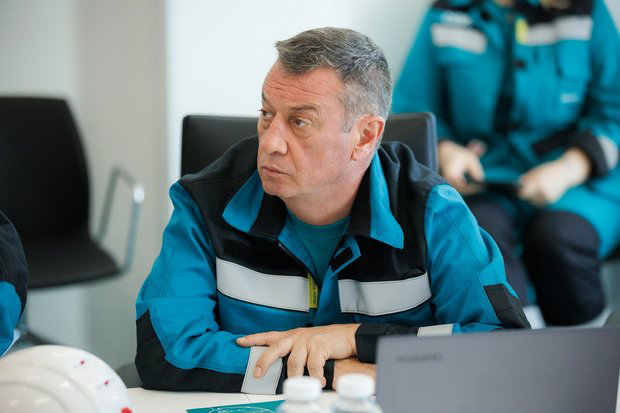
“The goal of the trip is a closer acquaintance with the Siberian production cluster of SIBUR: gas transportation, gas processing, petrochemical. It included detailed examination of various aspects of operation, use, economy, process organisation, etc. Similar information exchange is very important both from a practical, technical and technological positions and from a perspective of the company’s vision of itself in the economy of the country, the world, the possibilities of determining prospects and planning future, including joint actions. And of course, we are interested in possibilities of improving some processes. SIBUR has always tried to lead many areas. These are ambitious and very good goals founded in the company’s strategies that gradually become a reality. TAIF is interested in these practices and competencies,” Farid Minigulov told Tatarstan journalists.
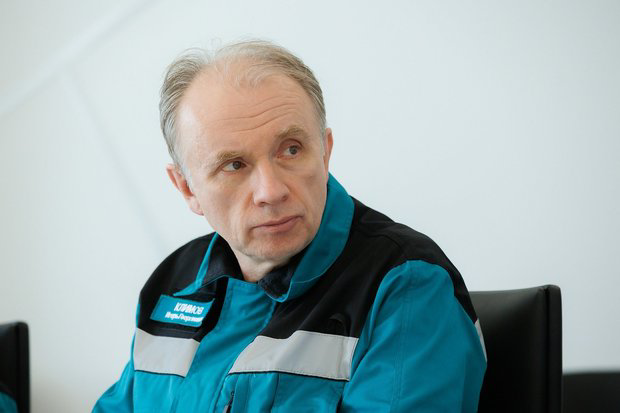
The management of SIBUR demonstrated the readiness to tell and share experience from the first minutes of the visit:
“The focus on partnership is one of the key priorities. And if TAIF Group of Companies and SIBUR help each other to become better, more stable, which we only welcome,” board member and Managing Director of Production Efficiency. Energy and Resources at SIBUR Igor Klimov stressed in an interview.
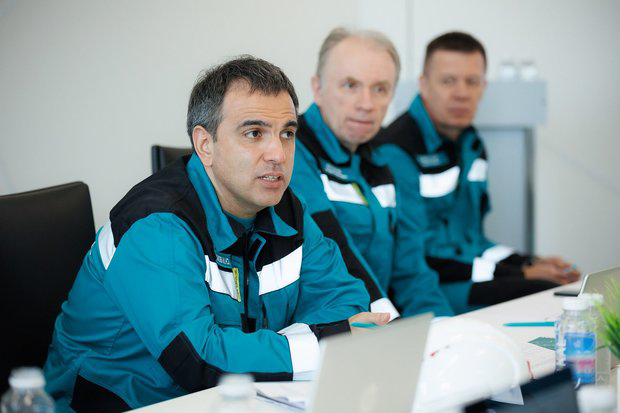
Board Chairman, Director General of SIBUR Mikhail Karisalov not only confirmed this readiness but also noted that this flow operated in both directions. And the groundwork created in Tatarstan oil refineries long before the creation of the united company is gradually retransmitted into the historical perimeter of SIBUR.
“The engineering competence at the same Nizhnekamskneftekhim is, perhaps, even higher than in many other enterprises of SIBUR. Our task, as well as mine as one of the team members, is to precisely provide bridges in both directions knowledge, competencies, skills will flow through. We all will become stronger together,” he shared with journalists.
99.7%
The Vyngapurov Gas Processing Plant was chosen for familiarisation for a reason. The plant that was founded in 1990, however, it was then just a compressor shop, has experienced various metamorphoses in its history and today it can accept up to 4.1 cubic metres of associated petroleum gas.
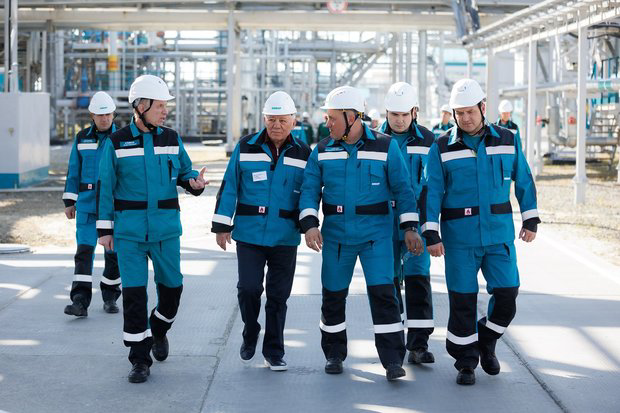
The recovery of target components — ethane, propane, butane, a total of 27 different hydrocarbons, reaches a record 99.7% there. It is one of the world’s best figures. To compare, the average indicator at SiburTyumenGas is 98.5%.
All processes are shown in real time on monitors of ECON system in the operator’s room. Every specialist anyway see how efficient production processes are and can influence them to achieve a better result.
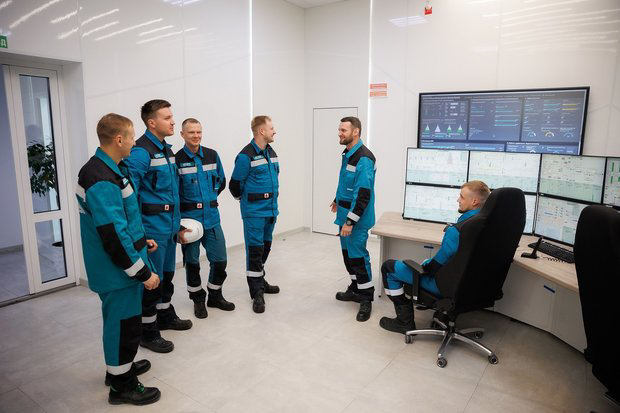
“All associated petroleum gas is divided into two components: dry stripped gas that goes to Gazprom’s system and a wide faction of hydrocarbons that is used in further processing of the company to make monomers — ethylene, propylene, etc. Then, consequently, it is used to manufacture polymers — polypropylene, polyethylene. Part of the feedstock is used for further processing: rubber and so on,” explained Director of the Vyngapurov Gas Processing Plant Vladimir Alyokhin who welcomed the guests.
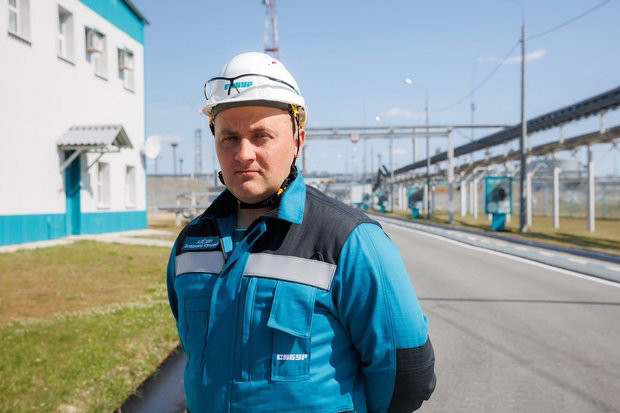
Albert Shigabutdinov and Farid Minigulov were very curious about the technologies used on the site, moreover, the plant turned out to be unique from this perspective too:
“All compressing capacities, compressors operate in turbines, unlike classic solutions in the gas processing plant where all drives are electric. While electricity can reach up to 50-52% of feedstock processing prime cost. Doing without external generation by switching to direct electric drives for gas processing is one of the solutions for the sector. Here we installed them from the very beginning. The plant operates completely on its own — with its own generation,” Mikhail Karisalov explained during a brief meeting on the production site.
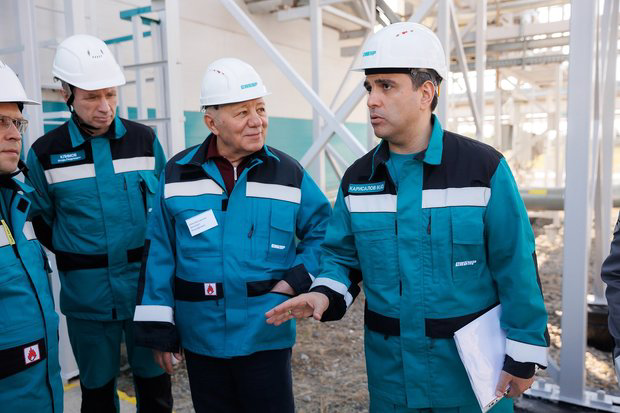
As it turned out during the talk, SIBUR’s gas processing is closely linked with Tatarstan’s industry. So the Kazan Motor Engineering Production Association services its turbines.
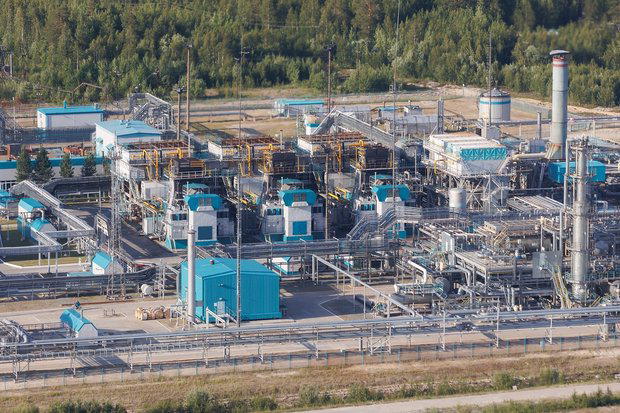
Before going to Tobolsk, the delegation from Tatarstan flied above the Vyngapurov Gas Processing Plant and part of the network of gas and product pipelines.
To Siberia on Your Free Will
This slogan welcomes people arrived at Remezov international airport that was built with SIBUR’s active involvement and opened in Tobolsk less than two years ago. Earlier, one had to go by car or train from Tyumen and spend another 4-5 hours to be in the petrochecmical capital of Siberia. Today everything is much simpler.
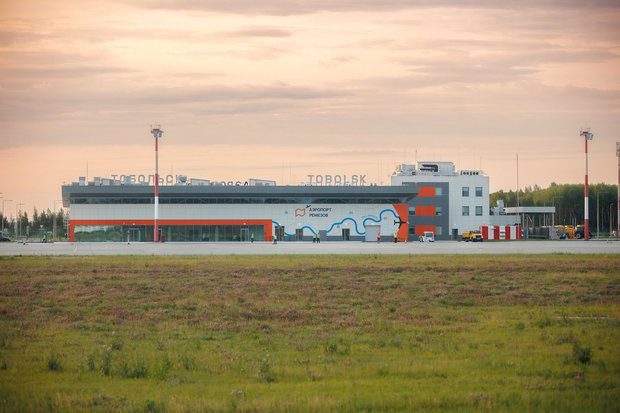
“The first flight from Moscow was received on 24 September 2021. This February we were awarded the status of international airport. In December, we crossed the first landmark — 50,000 passengers. The next one is 100,000,” said Yevgeny Novosyolov, press secretary of Remezov international airport in Tobolsk, welcoming the guests from Tatarstan at another point of the route, on Tyumen soil.
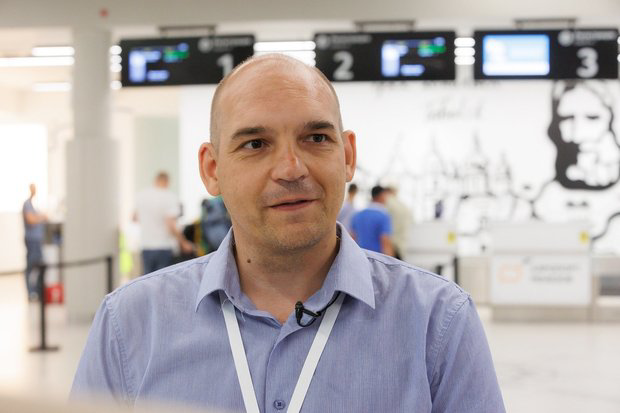
Life in Tobolsk became brighter with the launch of Remezov airport — much brighter. Tourist traffic suddenly went up. Moreover, guests arrive to look at the historical capital of Siberia and one of the country’s biggest industrial centres, while Tobolsk citizens travel more to have a look at other regions.
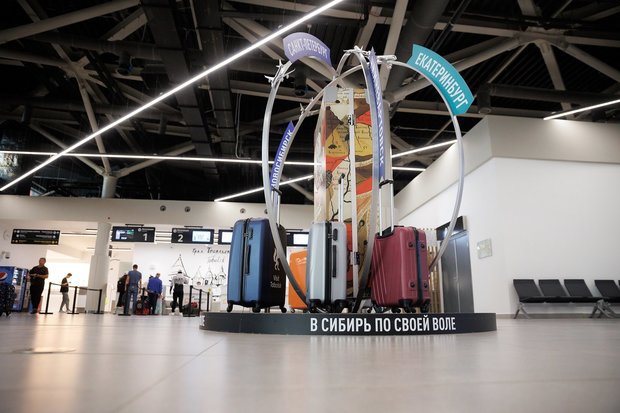
“The airport lives. There is a real flow of guests on holidays and in high season. Moscow, Saint Petersburg and Kazan are today the main and the most popular destinations. Tobolsk citizens often fly to Kazan and people come from Kazan. Northern destinations opened — Surgut and Novy Urengoy, it is Tyumen Oblast and people fly there. People also fly to Nizhnekamsk, mostly on business trips. But Tobolsk and Kazan have not only business air communication but also there is active exchange of tourists,” Yevgeny Novosyolov shared his observations.
Siburintech: a place where professionalism is faceted
An old factory management building of SIBUR-Tobolsk was just a few years ago instead of today’s SIBUR training centre. Today it is one of the country’s most advanced professional training centres. And in Tobolsk precisely this centre became the first place the TAIF delegation visited.
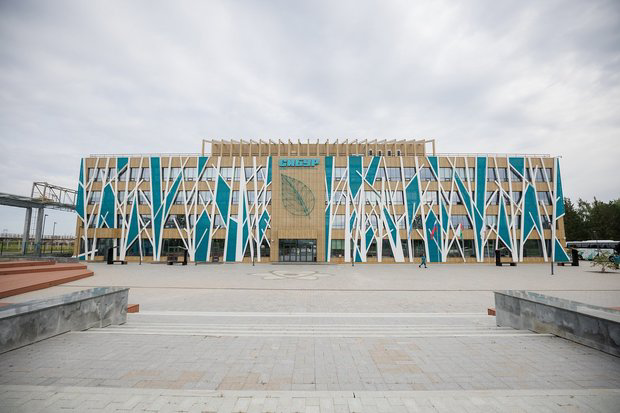
“The key moment is that training equipment for control and instrumentation engineers, metrologists, mechanisms is absolutely identical to what they will see in a factory. The equipment was only of foreign origin until recently, but now, with the modernisation of key plants, Russian equipment is installed too,” Igor Klimov explained.
Specialists from all plants and companies of SIBUR, including from Tatarstan, do training here. However, as it turned out, one training centre is already little for the growing and developing company. The question where the next one would be didn’t raise debates.
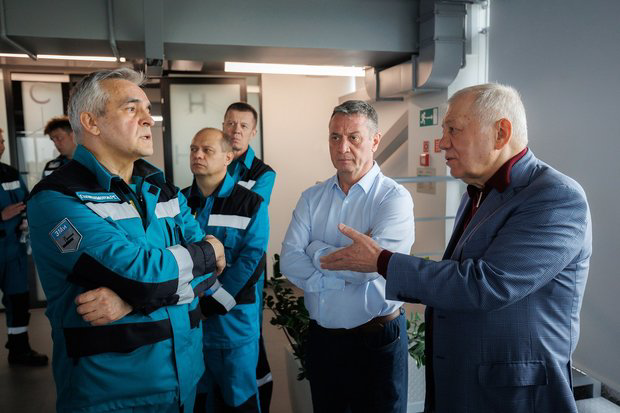
“We don’t rule out another training centre will be created in the Republic of Tatarstan. We see great demand. There’s quite a big number of employees who need to train,” Managing Director, head of SIBUR’s corporate university Rustam Galiakhmetov shared plans.
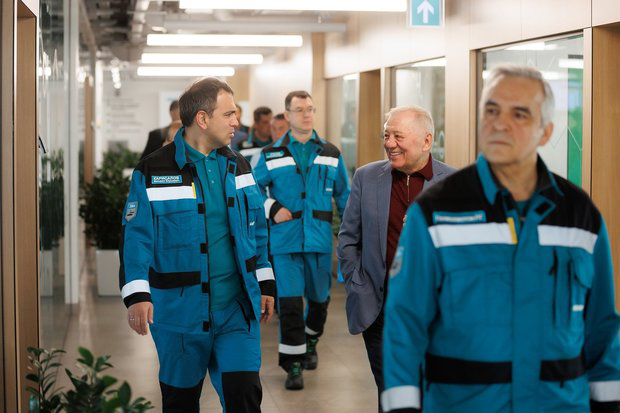
Later in a talk with Realnoe Vremya’s journalist, Mikhail Karisalov specified that the construction wouldn’t begin “tomorrow already,” at least because the new training centre will have more tasks than the Tobolsk centre:
“One thing is to build a training centre for our own captive order, another thing is to create a modern professional training centre with a bigger aim so that it can operate as an educational campus with special programmes being at the same time part of professional educational programmes for specialised educational institutions, the same Lemayev college and others. We think this is very important. There are federal grants, there is a policy on creating such educational points of attraction the Republic of Tatarstan itself pursues at a very good level. Can we build another educational centre for ourselves? Of course, we can. But it would be correct to do this in cooperation with existing professional educational institutions and to make sure that it is useful at the same time not only for SIBUR but also for other employers — TANECO, TAIF-NK and others.”
Repair standards reconsidered every year
This phrase was heard during a visit to ZapSibNeftekhim’s Repair Plant. And the case isn’t that existing standards are not perfect but the plant itself constantly develops and masters new competencies.
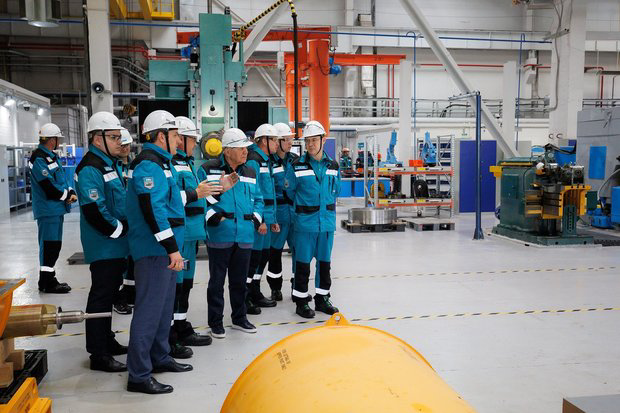
Another 10 machine tools that will open new possibilities to service, repair and restore equipment used in key production processes are expected to be delivered these days. The equipment consists of around half a million pieces. This is why figures sound more convincingly: ZapSibNeftekhim repairs up to 52% of all current and major works on its own, inviting specialists from SIBUR’s other companies too.
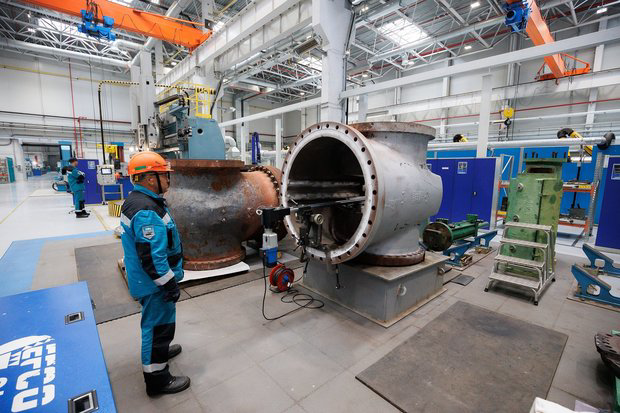
“We closely cooperate with the Tatarstan enterprises, including during peak moments, for instance, during the shutdown repair. We particularly engaged lads from Nizhnekamsk to repair dynamic equipment. Now Tatarstan lads are involved in the mechanical assembly of pump equipment of third, fourth and sometimes first group of importance. In general we constantly invite specialists from both Kazanorgsintez and Nizhnekamskneftekhim to repair check valves — not only during peak moments but also from a training perspective. And at the same time we cascade the culture and practice we have. It is systemic regular meeting we are involved in, our specialists go there and also provide support,” ZapSibNeftekhim’s Chief Engineer Vladimir Romanov explained during the familiarisation with the plant.
2,000 hectares for petrochemistry
Or if we compare it with something more habitual, it is approximately 3,333 football pitches. And all this territory is for a modern high-tech and thoroughly modernised equipment of one of the world’s largest petrochemical plants — ZapSibNeftekhim.
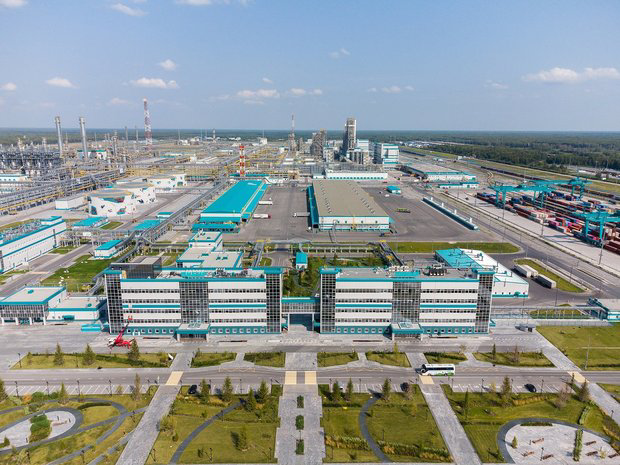
The territory is huge, the plants are large. With its installed capacity of 8.2 million tonnes of feedstock processing, the company refined 8.9 million tonnes in 2022 by making a wide line of products: polyethylene, polypropylene, butadiene, isobutylene, maleic anhydride…
The secret of improvement of production efficiency is in the active introduction of digital technologies. It is tens of unique, local, general solutions.
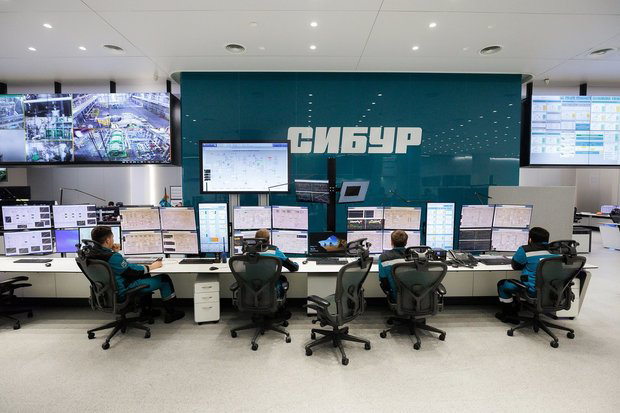
“Every instrument gives an effect. Some instruments are hard to be directly converted into a monetary efficiency equivalent, to monetise, and some instruments are precisely aimed to provide additional income. ECONS is the headliner of our stream. It was launched in 2018 and has already brought more than 2 billion rubles at ZapSib alone. The second, probably, important instrument in terms of economy is the real time optimisation that helps optimising the production regime from a perspective of economy. It was launched in 2020 in two plants — in gas separation and pyrolysis — and already saved 400 million rubles,” ZapSibNeftekhim’s manager of digital technologies Andrey Kryukov talked about the efficiency of digital instruments.
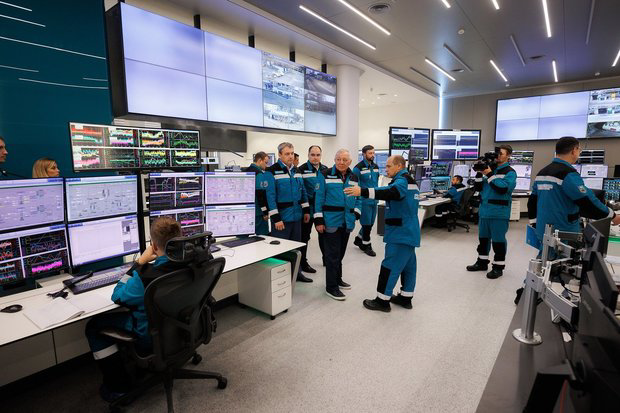
The day in Tobolsk turned out to be superintense for the TAIF delegation: a visit to plants, familiarisation with logistics, discussion of cooperation issues and mutual interests.
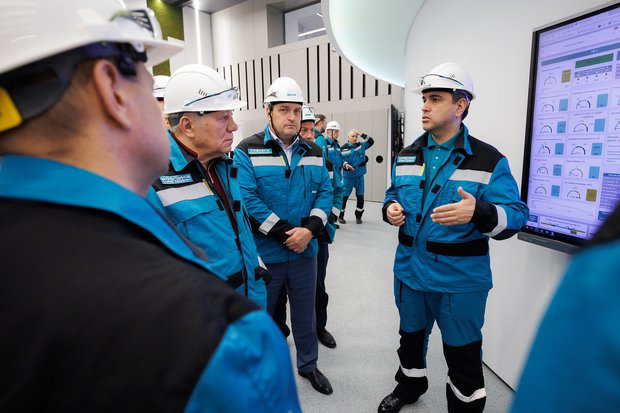
“The main issue is how we consider both Mr Albert Shigabutdinov personally and the TAIF team. We consider them as colleagues who have not only a huge but decades-long experience of using their assets can tell us a lot about it. Another side for me, obviously, is intrinsically linked with the first one: it is not only experience exchange but also the fact that Mr Shigabutdinov as a representative of SIBUR shareholders, board member, member of board committees is also a manager for me who we have been cooperating at least monthly in a big number of issues. This visit is very important for me as an opportunity of close work and direct dialogue,” Board Chairman, Director General of SIBUR Mikhail Karisalov noted summing up the meeting.
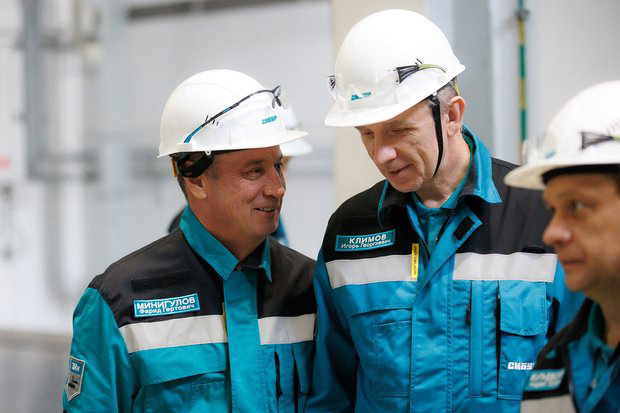
Senior Adviser to the Board Chairman of TAIF JSC in petrochemistry Farid Minigulov noted that during the two-day visit there were seen new areas of cooperation and exchange of cooperation between TAIF and SIBUR, including in process digitalisation:
“The ECONS system that is already used here and now actively introduced in Tatarstan enterprises of the united company is interesting outside SIBUR’s perimeter too. It is both useful and convenient. It is important that not only the management care about the economy of production processes, it important that every work see and understand it. The ECONS system brings to this. It is illustrative, anytime.”
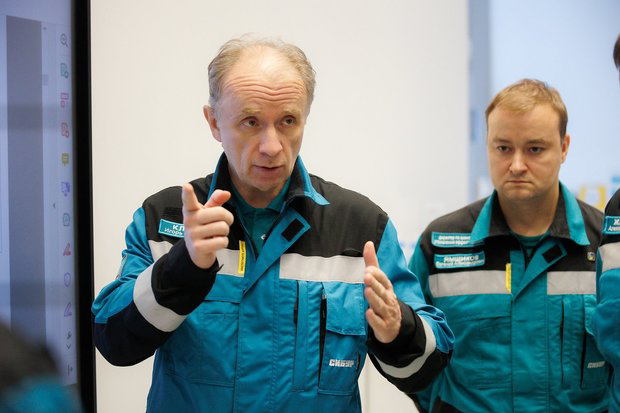
The exchange of information and useful experience already began. Moreover, precisely bilaterally. Meeting attendees talked about this many times.
“Those processes that were polished and launched here are already used in Tatarstan too. The only thing is that we try to speed up the processes at Nizhnekamskneftekhim and Kazanorgsintez because we already have standards and methods that were polished here. The most illustrative example is the work on factory amenities, water use cycles. We created the standard together but rested on practices of Nizhnekamskneftekhim, Kazanorgsintez and TGC-16. We take a lot from the groundwork in similar plants in Tatarstan from a perspective of production experience. And during this visit, Mr Minnigulov asked questions during a round, and answers to these questions resulted in ideas that can be elaborated and should be discussed,” board member and Managing Director of Production Efficiency. Energy and Resources at SIBUR Igor Klimov noted. The necessity of discussion envisages new meetings. It is yet unknown when and where they would take place — in Tatarstan or on SIBUR’s sites. But nobody doubts they will take place.
Ad of TAIF JSC.